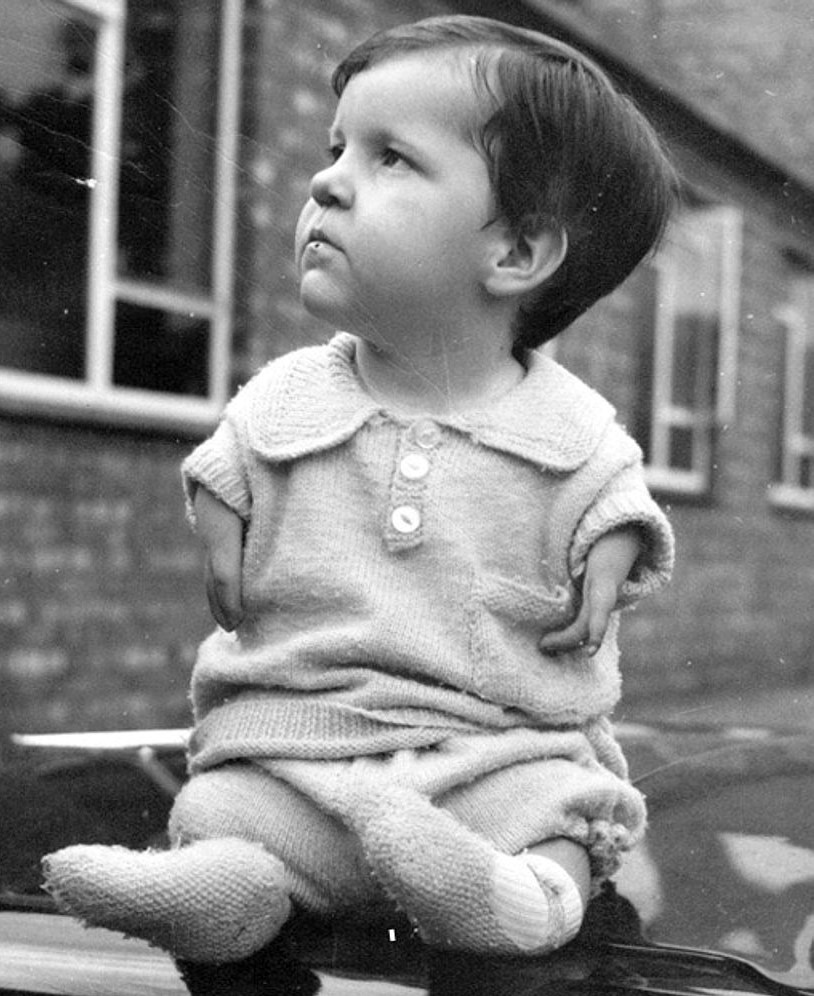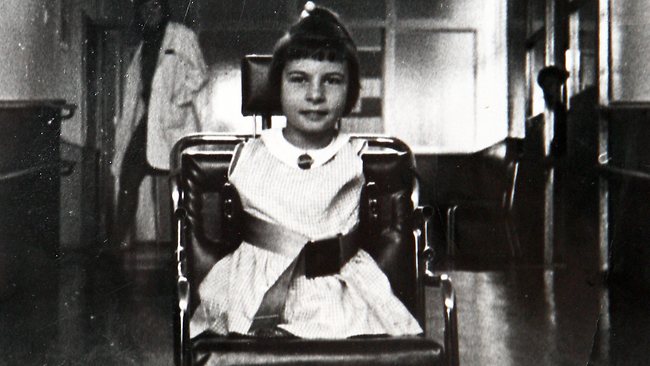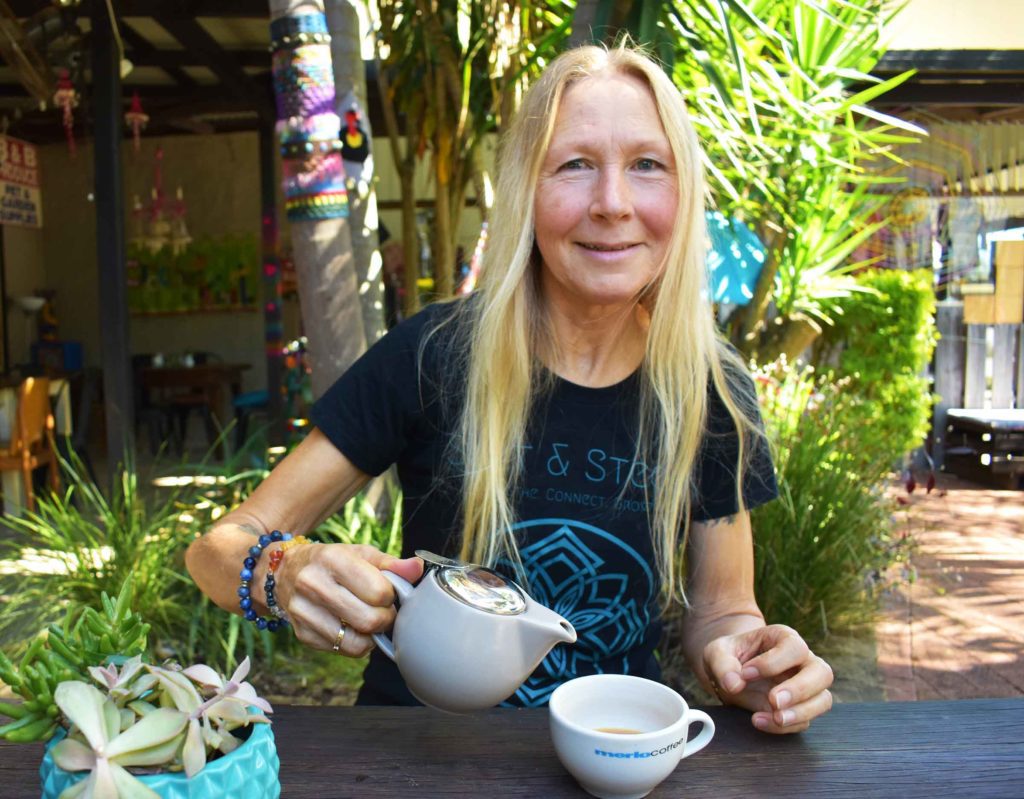ABOVE: Donna Ahearn in Kyogle. Photo: Susanna Freymark
STORY by Susanna Freymark
On the outside Donna Ahearn looks like a youthful 60 year old living her best life in Kyogle.
And she is.
But it isn’t easy.
Donna was one of the babies hit by the effects of thalidomide, a drug taken by her mother to combat morning sickness.
Donna is in constant pain. She is allergic to medications, perfumes and other smells such as petrol and she deals with a host of health issues related to being a ‘thalidomide baby’.
Two weeks after Donna was born in 1961, the thalidomide scandal broke and the drug was declared unsafe.
That was too late for Donna.
She was called one of the “lucky ones” because she had all her limbs – although her right elbow is bent, deformed and often painful.
Throughout the late 1950s and into the 1960s, babies were born with severe limb defects.
The photos of these limbless babies were shocking.

Donna reckons her “luck” was because her mother tried a free sample pack of the drug and had less thalidomide than the mothers who were prescribed the drug by doctors.
Melbourne woman Lynette Rowe was born without limbs. She led an Australian lawsuit against the drug manufacturer and was awarded millions of dollars in an out of court settlement.

Her case led the way for a class action in 2011 by other Australians impacted by thalidomide.
Because Donna’s mother had been given the sample pack, there was no record showing that she had taken thalidomide at all.
When Donna tried to access her hospital records, the hospital had closed and all the records had been destroyed.
Donna was one of about 40 who were unsuccessful in the class action.
“I got rejected, there was no evidence,” she said.
“That was disheartening.”
Years later, the same lawyer Peter Gordon pursued the government for compensation for those 40 people not included in the class action decision.
“I did the whole thing again, sent photographs and this time they accepted the information,” she said.
Donna received a lump sum gets a yearly payment from the government.
She had become used to the pain of living with a sensitive digestive system and a compromised immune system.
The validation from the government finally acknowledging what she has lived with has made her feel emotional about her health all over again.
“I was in and out of hospital for years,” Donna said.
She was one of 11 children growing up in Blacktown in Sydney and later in Windsor.
My mother was told that if I survived I might not be normal and I might not be able to walk, she said.
When she was five months old, her elbow swelled and she had a serious fever. Back to hospital she went and her mother had to travel twice a day by bus to breastfeed her in hospital.
“When I was one year old, I was learning to walk and fell over and broke my arm.”
As a child she knew she was different.
“I was non-verbal for the first two years of my life.
“I was scared of people and was painfully shy.”
She spent a lot of her childhood crying.
But she got used to it. She had to.
As an adult, the struggle of living with her invisible condition has been difficult.
“I’ve been suicidal twice,” Donna said.
Years ago, she tried living out of town at Rosebery Creek to escape things that would trigger her allergies but she felt lonely and isolated.
She has lived in Kyogle for 29 years.
She is in touch with the Australian Thalidomide Survivor Support Program.
“I still have a lot of health issues.”
The recognition from the government meant more than the money.
“I wish I could share it with my mother,” Donna said, her eyes starting to fill with tears.


